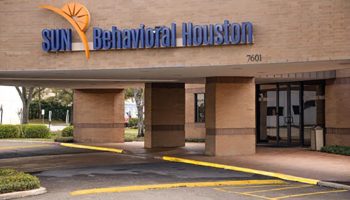About More Than Rehab
Amongst the forests and lakes of Tyler, Texas, is More Than Rehab’s East Texas facility. They’ve developed their Joint Commission accredited approach to addiction and co-occurring disorder treatment by drawing on and incorporating a variety of evidence backed methods to address the physical, mental and spiritual needs of clients.
What I like most about their program is that it offers a full continuum of care, from detox to aftercare planning. When you step down to a lower level of care, you’ll be in the same system working with familiar staff.
They work with some private insurance plans. Contact them to learn if they accept Medicare or Medicaid.
Building Support Networks
This program focuses on strengthening your support network in interesting ways. You can incorporate family meetings into your plan so your friends and loved ones can play a direct role in your treatment and recovery. Staff can also connect you with support groups like the 12 Steps or AA.
In many respects, recovery takes a team. You’re not alone in this, and involving more people in your recovery—whether they’re in treatment themselves or not—strengthens your support.
Planning Your Future
Staff will also work with you on relapse prevention planning. This goes beyond teaching you sobriety maintenance strategies (though you’ll learn those, too) by collaborating with you on plans you can fall back on when you face a crisis in recovery.
Become Part of Tyler
This location’s approach is based on the social model of recovery: building meaningful connections with those around you and becoming a part of the community to support your sobriety. One way to achieve this is by attending community events, like Tyler’s farmers’ market, and joining your neighbors in their daily lives.
| Levels of Care | Detox Service Setting | Programs | Payment Options |
|---|---|---|---|
|
Inpatient and residential programs provide round-the-clock medical and emotional support as you live at the treatment facility. This level of care may be recommended if you have severe addictions or mental health conditions since it removes outside distractions and allows you to focus solely on therapy. |
In outpatient therapy, you’ll attend therapy sessions several times each week while living at home. This is ideal if you have a strong support system and a lower risk of relapse. Outpatient treatment offers flexibility to maintain work, school or family obligations. |
||
|
Inpatient detox occurs in a dedicated treatment facility. You’ll live there around the clock and receive intensive medical support and supervision to help manage your withdrawal symptoms. It is suitable for individuals with moderate to severe addictions as it ensures a stable detox environment. |
Outpatient detox gives you access to medically supervised withdrawal services while still allowing you to live at home. You’ll attend a clinic for treatment and monitoring. This flexible option is suitable for those with mild to moderate withdrawal symptoms who have strong support systems. |
||
|
Alcohol detox programs offer medical support to help individuals withdraw safely from alcohol. Your care team may use medications to ease your symptoms and provide medical monitoring to address complications. |
Drug detox programs support individuals who are withdrawing from addictive substances like cocaine and heroin. Medical support helps you manage symptoms in a controlled and safe environment so you can achieve initial sobriety. |
||
|
Private Insurance
|
Self Pay
|
Levels of Care
Inpatient and residential programs provide round-the-clock medical and emotional support as you live at the treatment facility. This level of care may be recommended if you have severe addictions or mental health conditions since it removes outside distractions and allows you to focus solely on therapy.
In outpatient therapy, you’ll attend therapy sessions several times each week while living at home. This is ideal if you have a strong support system and a lower risk of relapse. Outpatient treatment offers flexibility to maintain work, school or family obligations.
Detox Service Setting
Inpatient detox occurs in a dedicated treatment facility. You’ll live there around the clock and receive intensive medical support and supervision to help manage your withdrawal symptoms. It is suitable for individuals with moderate to severe addictions as it ensures a stable detox environment.
Outpatient detox gives you access to medically supervised withdrawal services while still allowing you to live at home. You’ll attend a clinic for treatment and monitoring. This flexible option is suitable for those with mild to moderate withdrawal symptoms who have strong support systems.
Programs
Alcohol detox programs offer medical support to help individuals withdraw safely from alcohol. Your care team may use medications to ease your symptoms and provide medical monitoring to address complications.
Drug detox programs support individuals who are withdrawing from addictive substances like cocaine and heroin. Medical support helps you manage symptoms in a controlled and safe environment so you can achieve initial sobriety.




